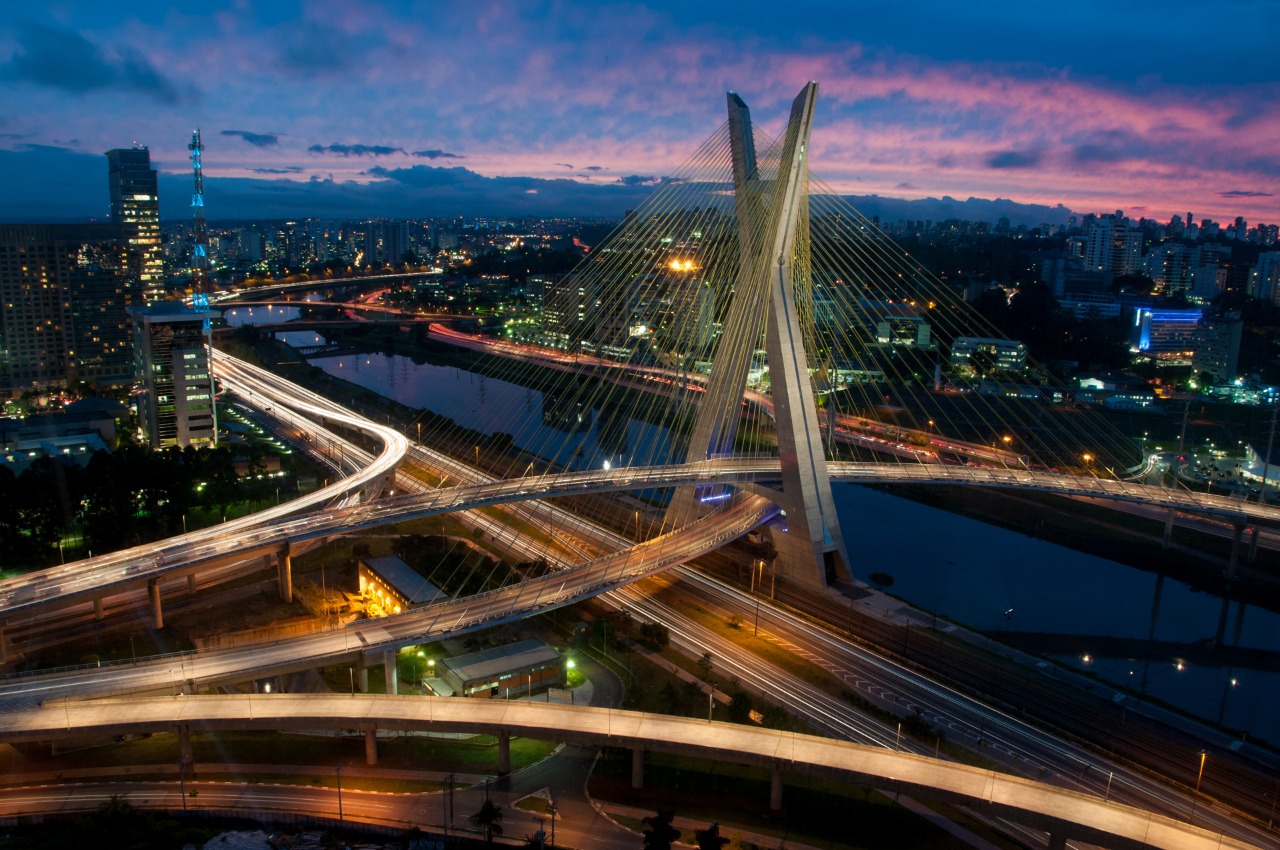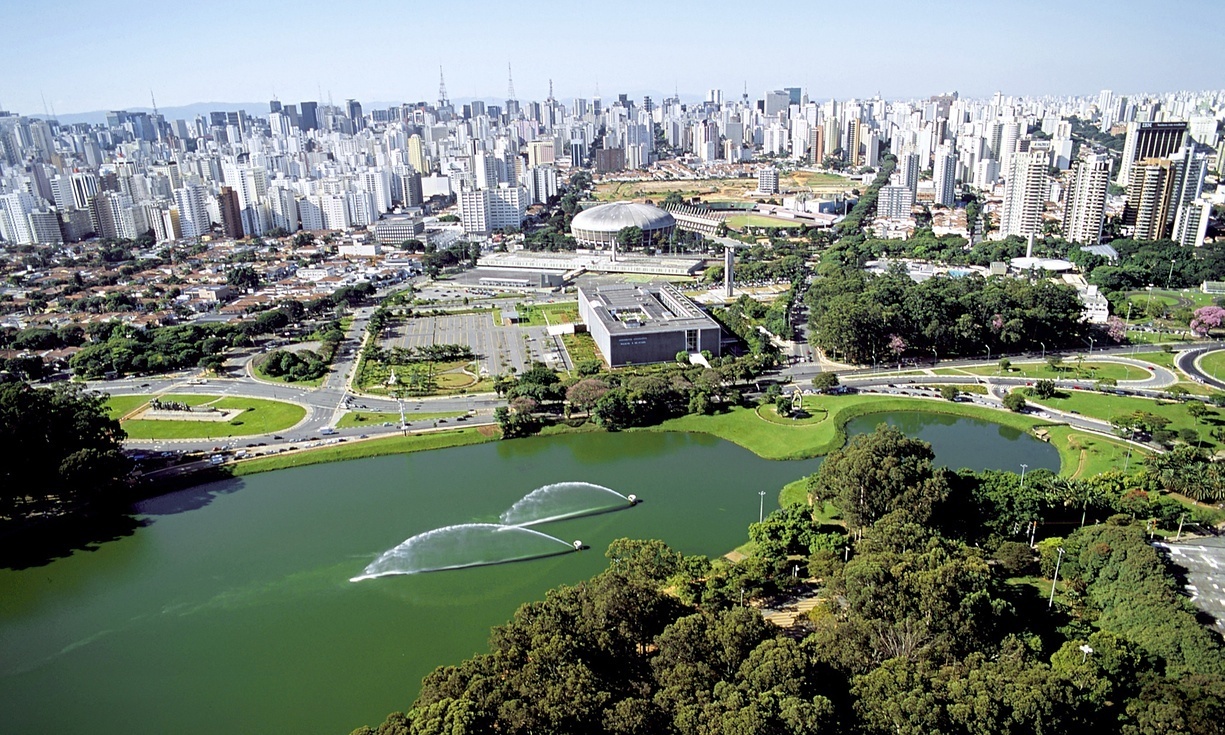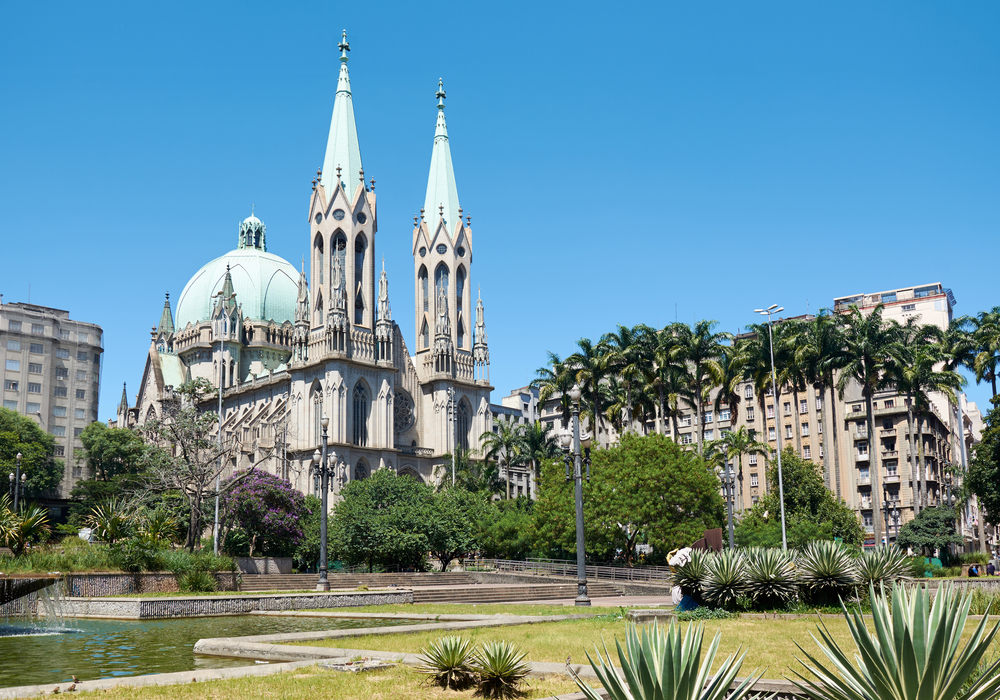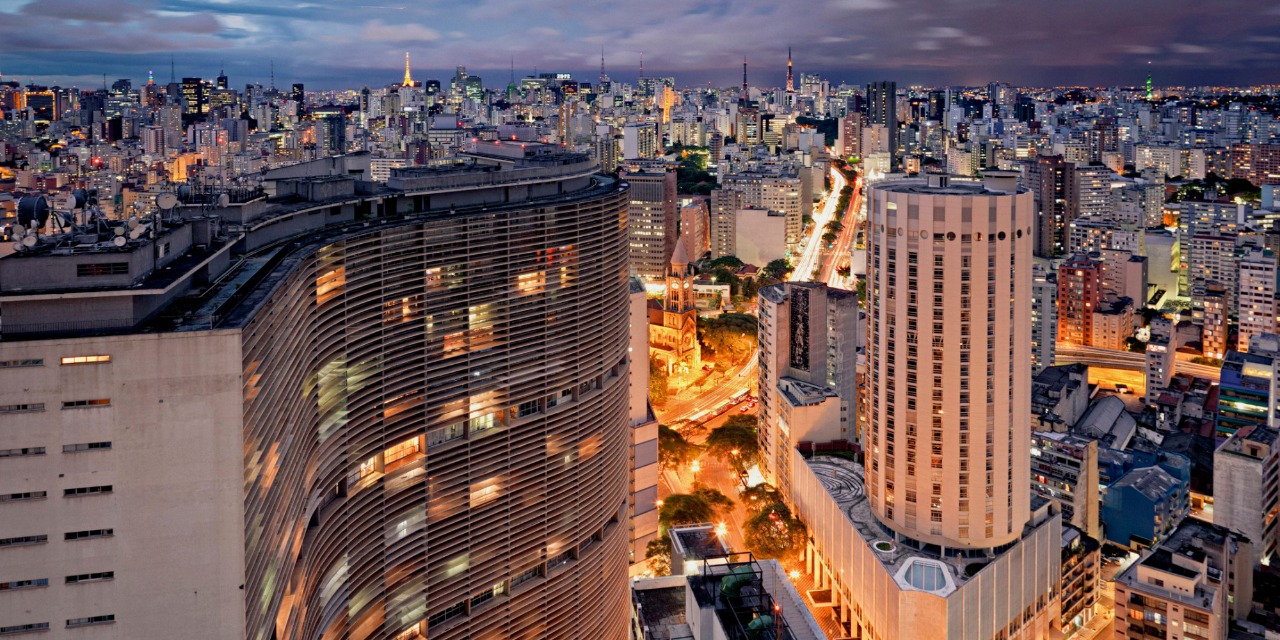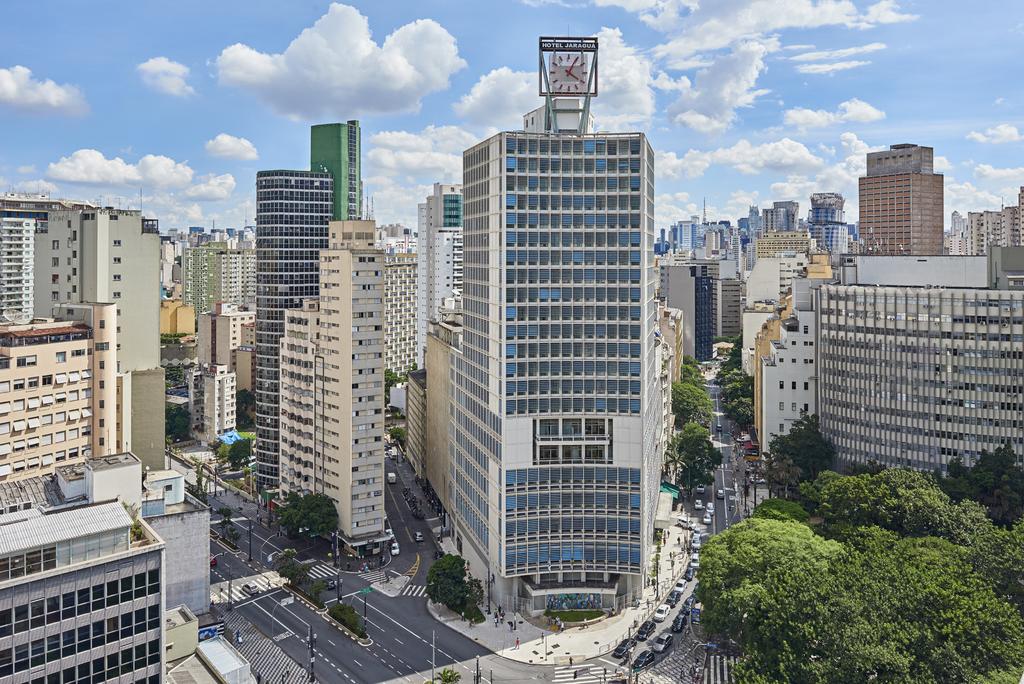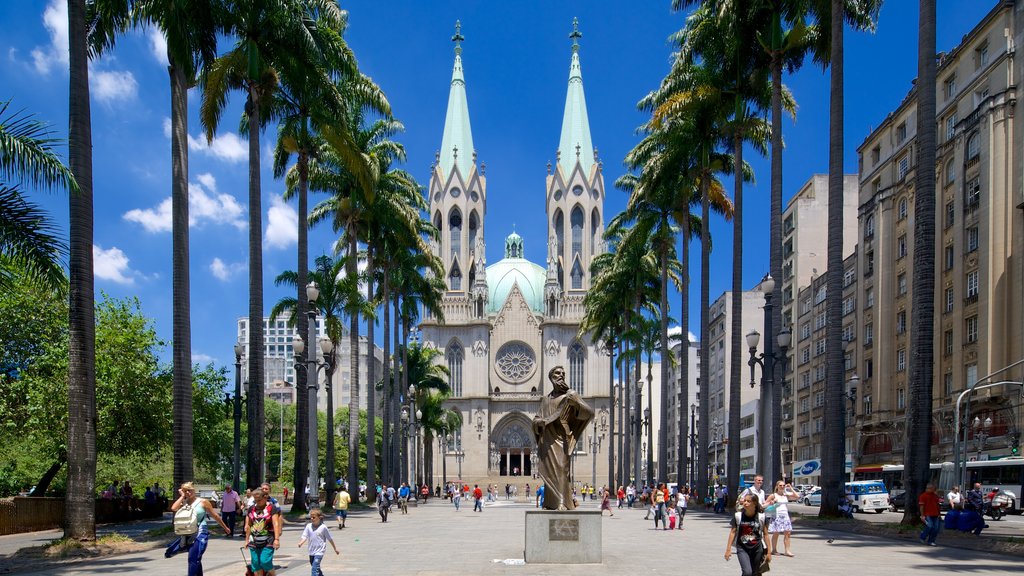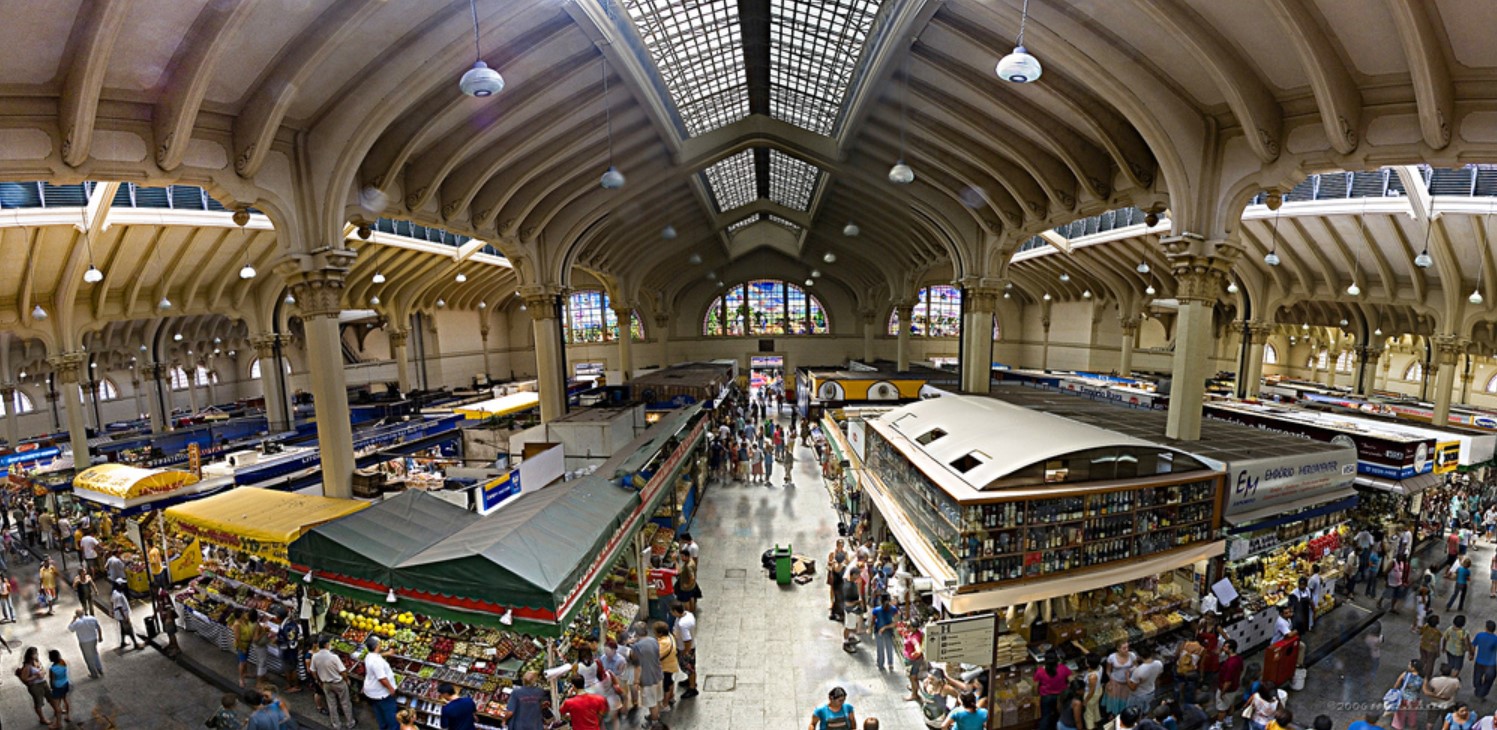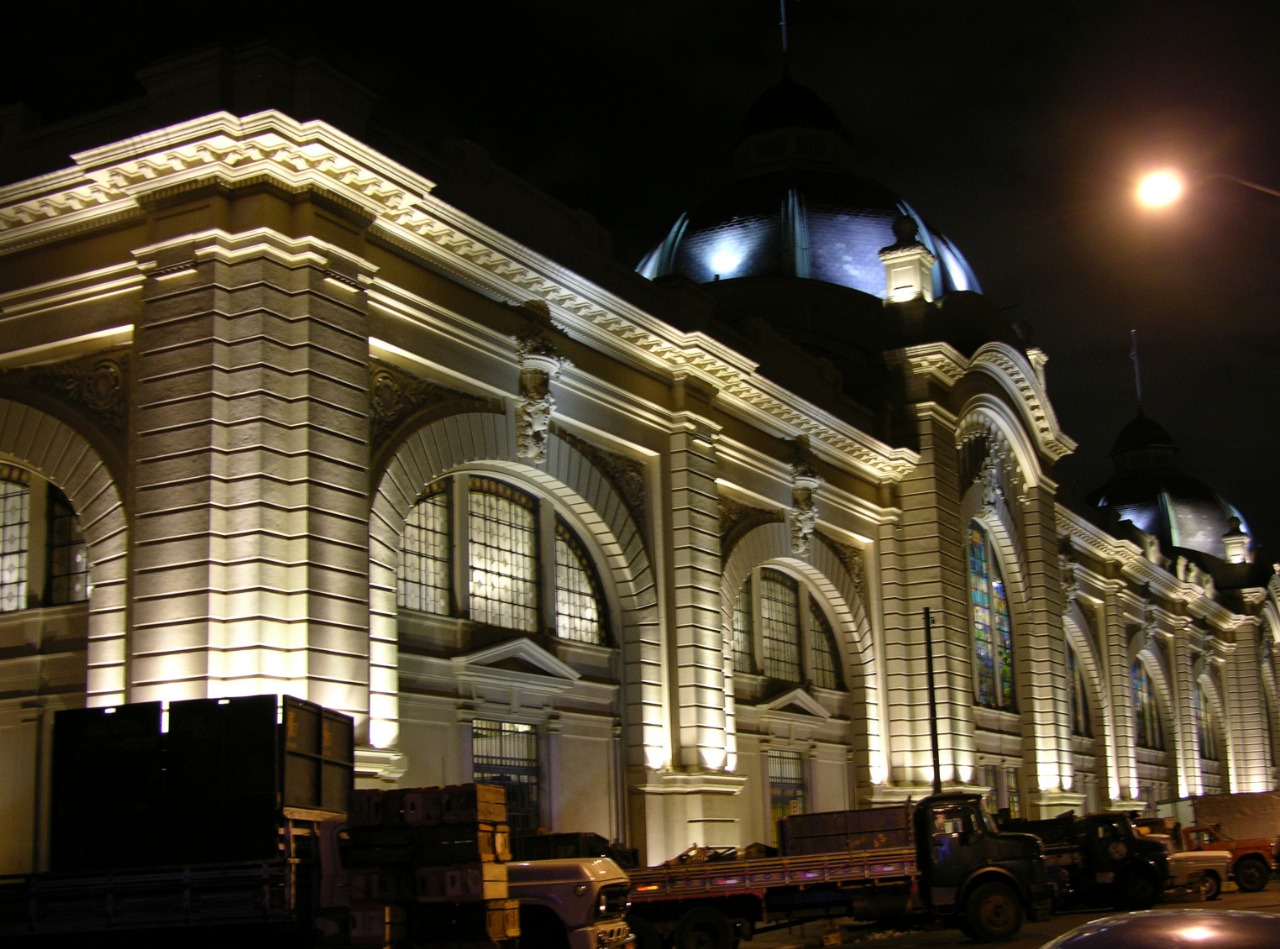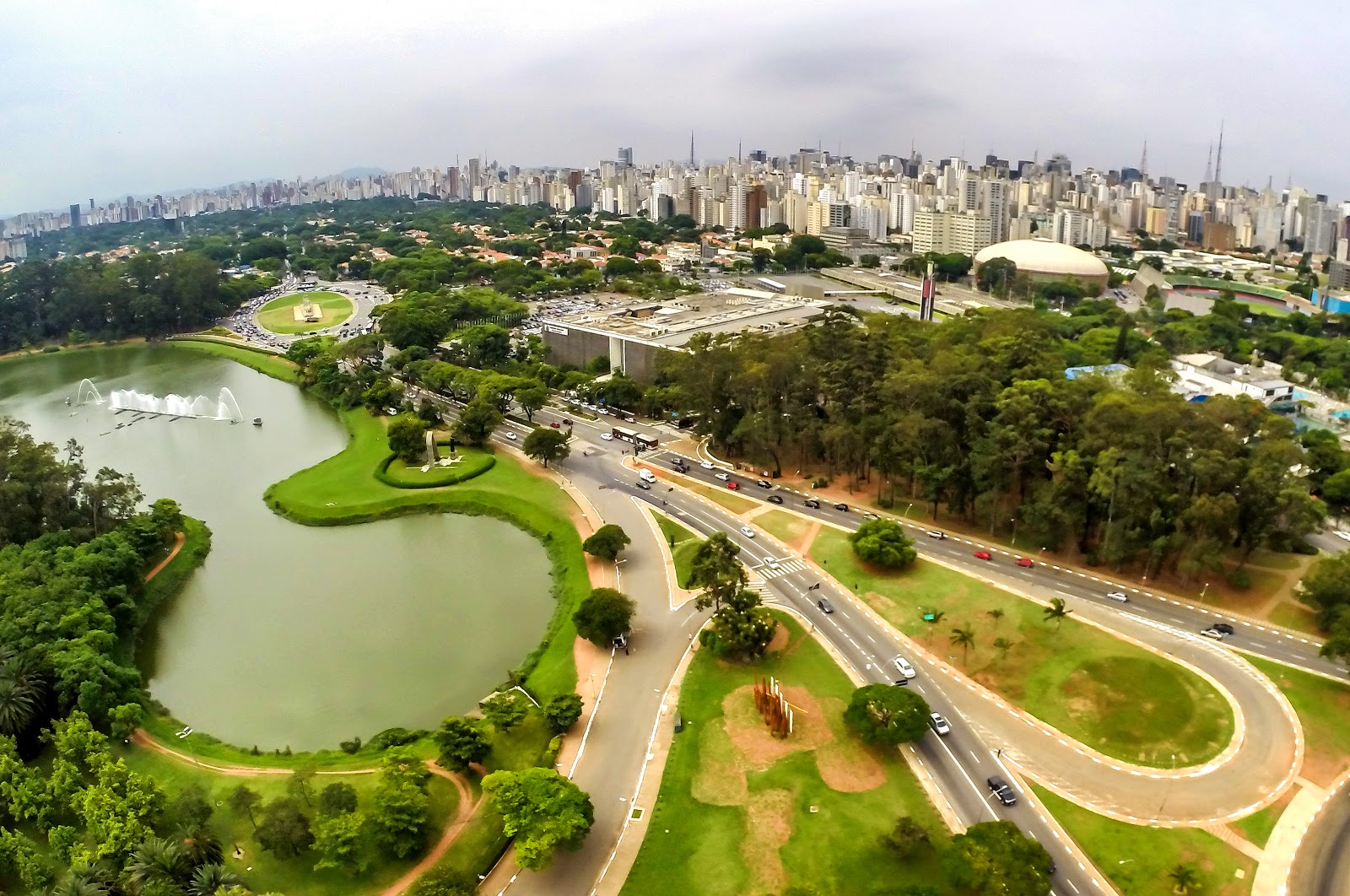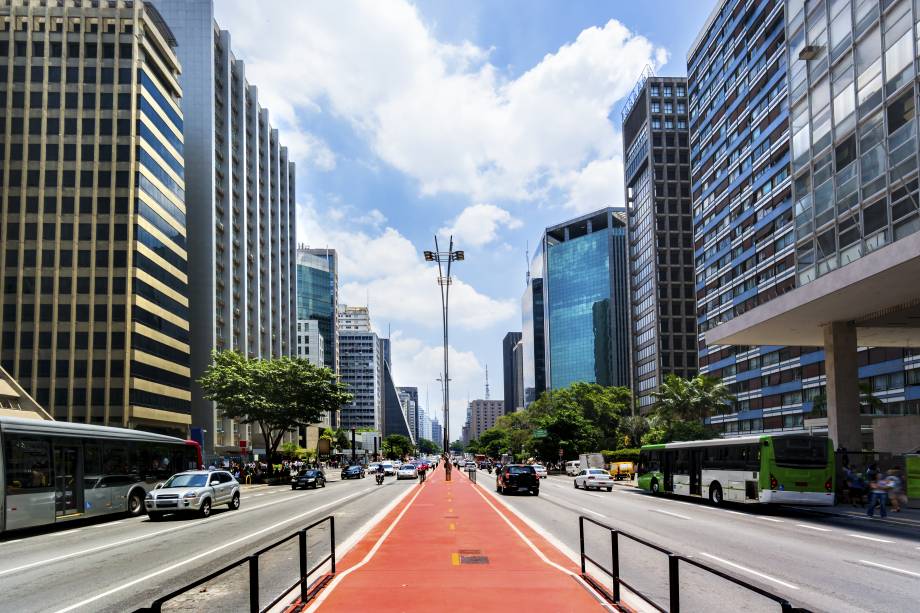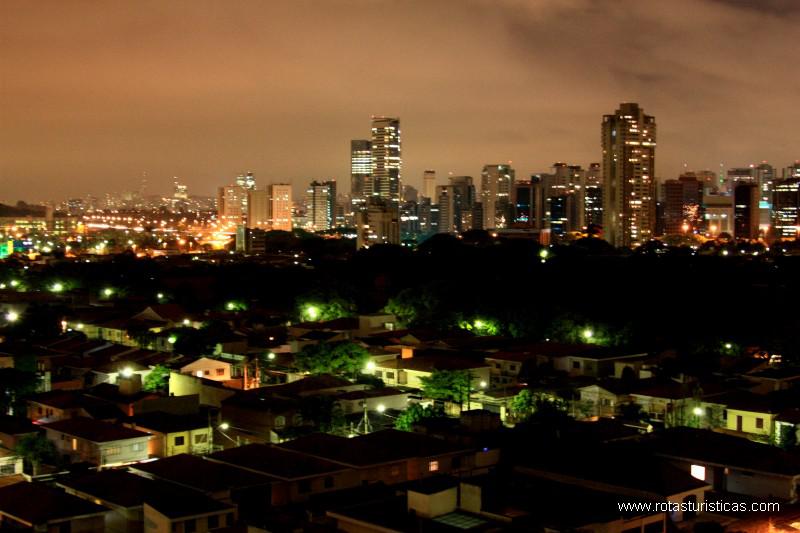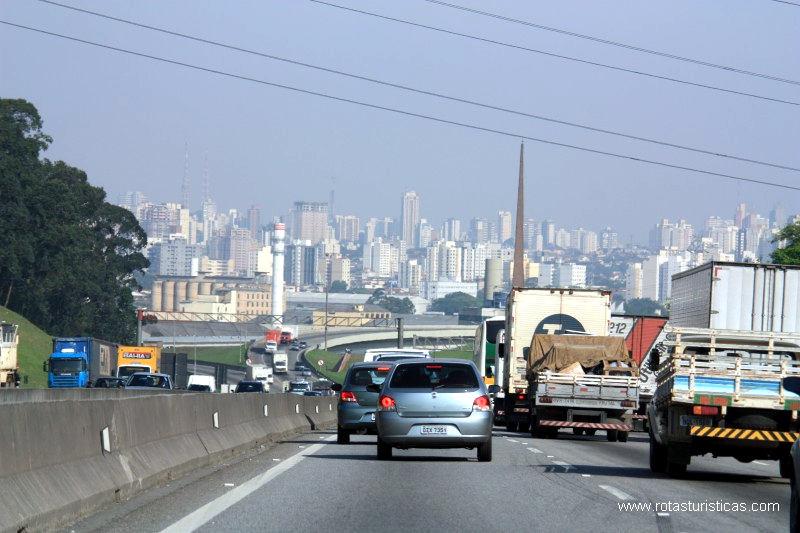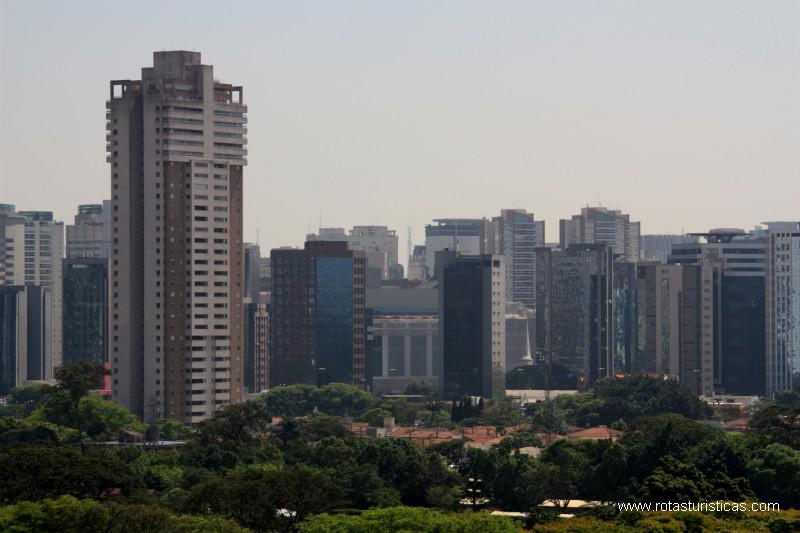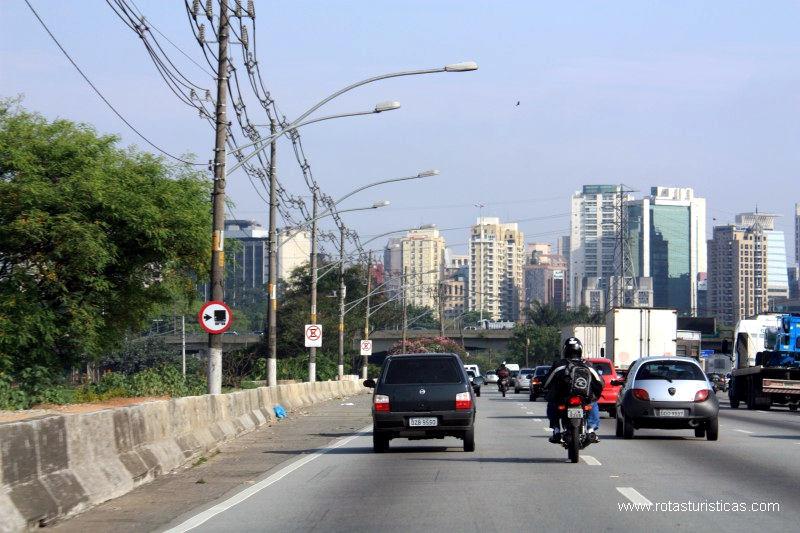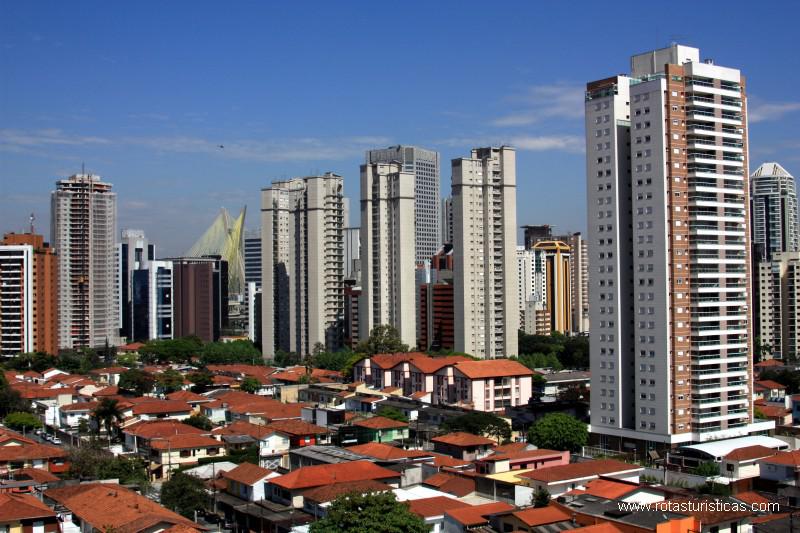Pictures of: Sao Paulo
Location map
Airports
Hotels and other Accommodation
Golf Courses
What to visit
Where to Eat
Consulates & Embassies
World Nomads
The Travel Insurance with the largest coverage

The Travel Insurance with the largest coverage

São Paulo
São Paulo, founded in 1554 by Jesuit priests, is a world-renowned city and exerts significant national and international influence, be it from a cultural, economic or political point of view, being the largest city in Brazil, the largest city in the Southern Hemisphere, a city of the world in population, with more than 10 million inhabitants, and the third largest city in the world and the largest in South America.
If Rio de Janeiro gained fame for its amazing natural scenery, the attraction of São Paulo lies in its people and its vibrant cultures.
The most cosmopolitan city has communities of important ethnic minorities, including Japanese, Italian and Christian, Arab and Lebanese neighborhoods.
The Paulista Avenue is the most important financial center of São Paulo. The city holds high profile events, such as the São Paulo Biennial, the Brazilian Formula 1 Grand Prix, São Paulo Fashion Week, ATP Brasil Open.
It is also the home of Brazilian television networks, including SBT, Rede Globo and Gazeta.
If Rio de Janeiro gained fame for its amazing natural scenery, the attraction of São Paulo lies in its people and its vibrant cultures.
The most cosmopolitan city has communities of important ethnic minorities, including Japanese, Italian and Christian, Arab and Lebanese neighborhoods.
The Paulista Avenue is the most important financial center of São Paulo. The city holds high profile events, such as the São Paulo Biennial, the Brazilian Formula 1 Grand Prix, São Paulo Fashion Week, ATP Brasil Open.
It is also the home of Brazilian television networks, including SBT, Rede Globo and Gazeta.
Tourism
It is home to several important monuments, parks and museums, such as the Latin American Memorial, the Portuguese Language Museum, the São Paulo Museum of Art, the Ipiranga Museum and the Ibirapuera Park.
Its museums are among the best in South America, its surrounding coastline is graced with many lovely beaches and its entertainment and nightlife have always attracted some of the best artists in the world.
In recent years, the city has become a center for its own martial art, the Brazilian capoeira, whose dance and movements are performed with music.
The art has its own traditional instruments: drums and berimbau, a rod of strings used to the time.
Originally developed as the martial art of the slaves of Bahia, capoeira was banned by the ruling classes. To keep their art alive, the slaves transformed it into a dance of capoeira and berimbau, accompanying their own dance. Still in the 1920s capoeira was banned and practiced only underground, today is a well-known and much loved show.
Another segment of the tourism market is the one that promotes the practice of adventure activities and recreational sports, in natural environments and outdoor urban spaces, involving emotions and controlled risks, requiring the use of specific techniques and equipment, the adoption of procedures for guarantee personal and third-party security and respect for environmental and cultural heritage.
Among the sports that can be practiced are para-skydiving, sky-surfing, base jump, hang gliding, paragliding, ballooning, ultralight, kayak, surfing, diving, sailing, acqua-rider, rafting, rafting, outrigger canoeing) and windsurfing.
Ecotourism is another segment of tourism that uses the natural and cultural heritage in a sustainable manner, encourages its conservation and seeks the formation of an environmental conscience through the interpretation of the environment, promoting the well-being of the populations involved.
Its museums are among the best in South America, its surrounding coastline is graced with many lovely beaches and its entertainment and nightlife have always attracted some of the best artists in the world.
In recent years, the city has become a center for its own martial art, the Brazilian capoeira, whose dance and movements are performed with music.
The art has its own traditional instruments: drums and berimbau, a rod of strings used to the time.
Originally developed as the martial art of the slaves of Bahia, capoeira was banned by the ruling classes. To keep their art alive, the slaves transformed it into a dance of capoeira and berimbau, accompanying their own dance. Still in the 1920s capoeira was banned and practiced only underground, today is a well-known and much loved show.
Another segment of the tourism market is the one that promotes the practice of adventure activities and recreational sports, in natural environments and outdoor urban spaces, involving emotions and controlled risks, requiring the use of specific techniques and equipment, the adoption of procedures for guarantee personal and third-party security and respect for environmental and cultural heritage.
Among the sports that can be practiced are para-skydiving, sky-surfing, base jump, hang gliding, paragliding, ballooning, ultralight, kayak, surfing, diving, sailing, acqua-rider, rafting, rafting, outrigger canoeing) and windsurfing.
Ecotourism is another segment of tourism that uses the natural and cultural heritage in a sustainable manner, encourages its conservation and seeks the formation of an environmental conscience through the interpretation of the environment, promoting the well-being of the populations involved.
Gastronomy
São Paulo is considered the World Capital of the City of Gastronomy.
Its cafés and restaurants offer a wide variety of national and international dishes. São Paulo is a true paradise for those who like good cuisine.
A network of one thousand restaurants offers typical Brazilian dishes as well as international dishes.
The variety of nationalities that live in São Paulo has made it a legendary city with regard to its cuisine, based on an amalgam of Japanese, Italian, Brazilian, Chinese, Jewish and Arab cuisine.
The city of São Paulo is home to thousands of restaurants where visitors can find almost every type of food at any time of day and night so that they can taste typical dishes from all over the country, as well as international food, expectations of people who like simple food, or for those who have a more sophisticated taste. It is also possible to find aphrodisiac food.
On the other hand, if the tourist wants to try more exotic foods, just visit the Municipal Market of São Paulo.
The "Mercadão", as it is known, is located in a building that is a good representation of the architecture of the coffee harvest period.
For those who do not want to cook, São Paulo offers thousands of options for all tastes.
Its cafés and restaurants offer a wide variety of national and international dishes. São Paulo is a true paradise for those who like good cuisine.
A network of one thousand restaurants offers typical Brazilian dishes as well as international dishes.
The variety of nationalities that live in São Paulo has made it a legendary city with regard to its cuisine, based on an amalgam of Japanese, Italian, Brazilian, Chinese, Jewish and Arab cuisine.
The city of São Paulo is home to thousands of restaurants where visitors can find almost every type of food at any time of day and night so that they can taste typical dishes from all over the country, as well as international food, expectations of people who like simple food, or for those who have a more sophisticated taste. It is also possible to find aphrodisiac food.
On the other hand, if the tourist wants to try more exotic foods, just visit the Municipal Market of São Paulo.
The "Mercadão", as it is known, is located in a building that is a good representation of the architecture of the coffee harvest period.
For those who do not want to cook, São Paulo offers thousands of options for all tastes.
Weather
Located in southeastern Brazil, São Paulo enjoys a warm tropical climate, with temperatures between 5 ° C (41 ° F) in the winter and 35 ° C (95 ° F) in the summer.
The state of São Paulo enjoys tropical climate, and temperatures are suitable for outdoor activities throughout the year. Stations are not clearly defined, as in the Northern Hemisphere.
Climate does not show wide changes in the interior of the state.
The state of São Paulo enjoys tropical climate, and temperatures are suitable for outdoor activities throughout the year. Stations are not clearly defined, as in the Northern Hemisphere.
Climate does not show wide changes in the interior of the state.
Other tourist destinations in:
Brazil
Brazil
Other world tourist destinations
Why to book with TOURISTIC ROUTES
The best prices
Our partnerships with the world´s largest operators offer research on the best market prices.
More options
At Rotas Turisticos you can book the hotel, buy the air ticket, book the transfer from the airport to the hotel and vice versa, book the local excursions, rent the car, take travel insurance and consult the places to visit and where to go.
Holiday Tips & Destinations
Hundreds of holiday destinations with all the options that allow you to easily choose the destination that best suits your dream vacation.
TOURISTIC ROUTES
Links

